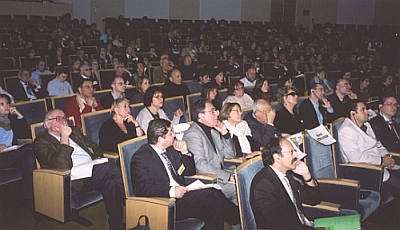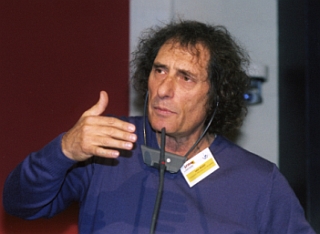
Into the future of brain research : touching the "mysterious"
The third symposium on brain research was organized last November by the French-Israeli neurosciences Association - better known as the AFIRNe -... Some of the best neuroscientists from both countries had accepted to join in and debate about "Brain Research and Understanding the Unconscious, the Conscious, and the Creative Brain". Idan Segev, a top neuroscientist from the Hebrew University of Jerusalem, offered the audience a brilliant speech on the future of brain research.
_

Jean-Claude Picard founded the AFIRNe - it stands for French-Israeli neurosciences Association - in 2003. He was adamant it was important to enhance cooperation between French and Israeli neuroscientists, after Europe had been thinking of boycotting Israeli universities, as a means to voice their concern about geopolitics' troubles.
Organized by both Jean-Claude Picard and Yoram Cohen (the latter being in charge of connections throughout Europe at the Hebrew University of Jerusalem), the morning session was this year presided over by the French scientist and academician Jean-Pierre Changeux. He did his conference on the "Global Working Space".
This symposium is becoming more and more famous, as it is quite different from others : everyone can go and get a chance to know more about brain research in general, conferences being made by some of the greatest world neuroscientists.

Idan Segev is head of the Interdisciplinary Center for Neural Computation in Jerusalem, in the renowned Hebrew University of Jerusalem. The center is a world pioneer in brain research, and puts forward the importance of computation and mathematiques when we now deal with neurosciences.
"Today", he says, "I would like to share and touch with you what I see as a huge development (...) in brain research especially in certain technologies that will bring us much closer to understanding how this fantastic machine built from 10 millions nerve cells is operating (...) We actually want to understand the machine".
Idan Segev also wonders how a physical system like ours can generate what we feel is 'free will' and what makes the difference beteween himself and Albert Eintein...
Indeed : science, love, happiness, sorrow... : everything seems to depend on our brain in the end!
And to induce you into listening to this fantastic conference, just read through that amazing sample:
"These days, you can really take a whole piece of a brain, one by one, reconstruct everything step by step, several thousands of pieces, put them together, anatomically, and see the whole piece of a brain, completely. There is not one cell missing. Not only that, but you can see the connections between the cells. So it's not only the structure of the cells themselves but who is talking to who, who is connected to who, completely. Not one missing synapse, not one missing cell, so it's a whole new regime of anatomy, it's modern anatomy, which just developped in the last 2 years. We just started to get a full anatomical picture of the brain."
Idan Segev talks about the Brainbow technology (having to do with the genetic code), great (not risky, of course) experiments on animals, including a very promissing one: this one shows how a monkey has succeeded to have a control over his artificial arm thanks to the power of his brain...
An amazing conference for anyone interested in the functionning of our brain!
The first part of the symposium is also available - the conference being made in French-Le cerveau : l’inconscient, le conscient et la créativité